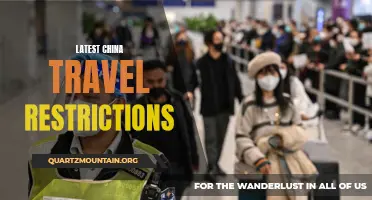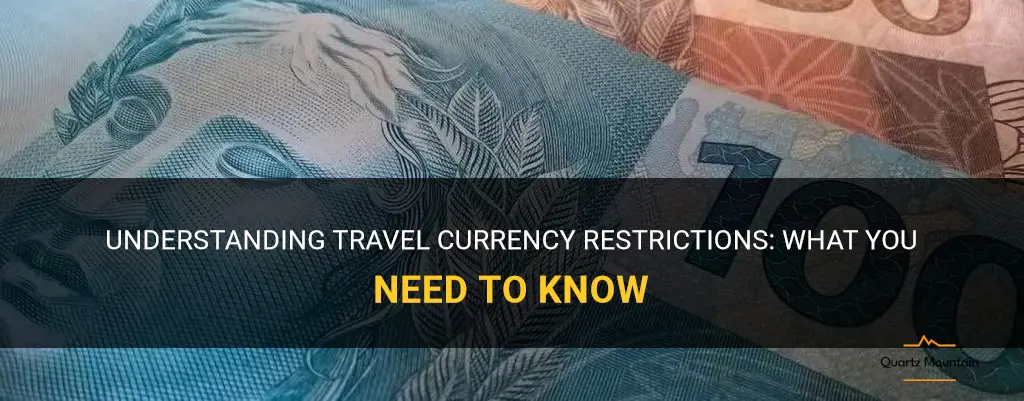
As the world becomes increasingly interconnected, travel has become more accessible and popular than ever before. However, with the rise of global economic uncertainties and security concerns, many countries have implemented travel currency restrictions. These restrictions aim to regulate the flow of money in and out of a country in order to address issues such as money laundering, tax evasion, and terrorism financing. While these measures are understandable from a government perspective, they can pose significant challenges for travelers who rely on easy access to their funds. In this article, we will explore the impact of travel currency restrictions on individuals and provide some tips on how to navigate these challenges while still enjoying a memorable trip abroad.
What You'll Learn
- What are some common travel currency restrictions imposed by countries?
- How do travel currency restrictions affect tourists and travelers?
- Are travel currency restrictions a common practice worldwide or are they specific to certain regions?
- How can travelers prepare for travel currency restrictions before their trip?
- What are some alternative options for travelers to access and use money in countries with strict travel currency restrictions?

What are some common travel currency restrictions imposed by countries?
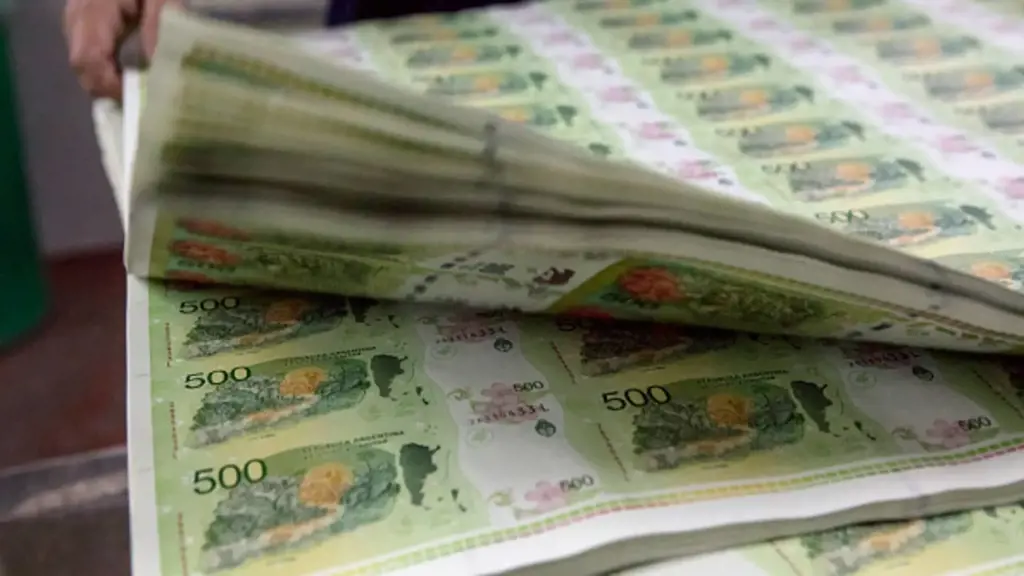
When travelling to a new country, it is important to be aware of the currency restrictions that may be imposed by the destination country. These restrictions are put in place to regulate the flow of local currency and to prevent illegal activities such as money laundering. Here are some common travel currency restrictions that you may encounter:
- Cash limits: Many countries impose limits on the amount of cash that you can bring in or take out. These limits vary from country to country, so it is important to research the specific restrictions for your destination. For example, some countries have a limit of $10,000 USD or its equivalent, while others may have lower limits.
- Reporting requirements: In addition to cash limits, many countries require you to declare any amount of cash or cash equivalents above a certain threshold. This is usually done by filling out a form upon arrival or departure. Failure to declare the cash can result in fines or confiscation of the funds.
- Currency exchange regulations: Some countries have restrictions on currency exchange, including limits on the amount that can be exchanged or requirements to provide identification. This is done to control the country's foreign exchange reserves and prevent currency speculation.
- Prohibited currencies: In some cases, certain currencies may be prohibited from being brought into or taken out of a country. This is usually done to prevent counterfeiting or to protect the local currency. For example, North Korea prohibits the import and export of foreign currencies other than US dollars and Euros.
- Restricted transactions: Certain transactions may be restricted or prohibited while travelling in a foreign country. This can include limitations on the use of credit or debit cards, restrictions on wire transfers, or restrictions on the purchase of certain goods or services with foreign currency.
It is important to note that these currency restrictions can change frequently, and it is your responsibility to stay informed about the latest regulations. You can do this by checking the country's embassy or consulate website, consulting with your bank or credit card provider, or seeking advice from a travel agent.
Failure to comply with currency restrictions can have serious consequences, including detention, fines, or even criminal charges. Therefore, it is essential to familiarize yourself with the regulations before you travel to avoid any complications during your trip.
In conclusion, currency restrictions are a common part of international travel and are imposed by countries to regulate the flow of money and prevent illegal activities. By staying informed about these restrictions and abiding by them, you can ensure a smooth and hassle-free travel experience.
What Are the Current Amsterdam Travel Restrictions from the UK?
You may want to see also

How do travel currency restrictions affect tourists and travelers?

Travel currency restrictions can have a significant impact on tourists and travelers, affecting their ability to exchange and access money while abroad. These restrictions can vary from country to country and can be enforced for various reasons, such as economic stability, preventing money laundering, or controlling inflation. In this article, we will explore how these restrictions affect tourists and travelers, and what steps they can take to navigate these limitations.
One of the primary ways that travel currency restrictions affect tourists and travelers is by limiting their access to local currency. Some countries may have restrictions on the amount of foreign currency that can be brought into or taken out of the country. This means that travelers may need to plan ahead and ensure they have enough local currency for their trip, as ATMs or currency exchange services may not be readily available.
In addition to limiting access to foreign currency, travel currency restrictions can also impact the use of credit or debit cards. Some countries may impose limits on the amount of money that can be withdrawn or spent using cards, making it difficult for tourists to pay for accommodations, meals, or other expenses. This can lead to situations where tourists are unable to make necessary purchases or are forced to carry large amounts of cash, which can be inconvenient and potentially unsafe.
Furthermore, travel currency restrictions can also affect the exchange rate between foreign and local currency. In some cases, governments may implement fixed exchange rates, which can result in tourists receiving less local currency for their foreign currency. This can make travel more expensive, as tourists will have to spend more money to cover their expenses.
To navigate these currency restrictions, tourists and travelers should follow some key steps. Firstly, it is important to research and understand the currency restrictions of the destination country before traveling. This can be done by consulting travel guides, government websites, or contacting the local embassy or consulate. By being informed, travelers can plan their finances accordingly and avoid any unexpected restrictions.
Secondly, travelers should consider diversifying their currency options. Instead of relying solely on cash or cards, it may be beneficial to carry a combination of both. Having some local currency on hand can be useful for small purchases or in cases where cards are not accepted. Similarly, having a card can provide a backup form of payment in case of emergency.
Additionally, travelers should also consider exchanging their currency at official exchange offices rather than informal or black market sources. Official exchange offices are more likely to offer fair exchange rates and legitimate services, ensuring that travelers get the best value for their money.
Lastly, it is important for travelers to keep track of their expenses and budget accordingly. By monitoring their spending, travelers can ensure they stay within any currency restrictions and can adjust their plans if necessary.
In conclusion, travel currency restrictions can have a significant impact on tourists and travelers. From limiting access to local currency to affecting exchange rates and card usage, these restrictions can present challenges for travelers. However, by researching ahead, diversifying currency options, and being mindful of their budget, travelers can navigate these restrictions and enjoy their trip with minimal disruption.
Updates on Current Cayman Island Travel Restrictions: What You Need to Know
You may want to see also

Are travel currency restrictions a common practice worldwide or are they specific to certain regions?
Currency restrictions imposed by governments on travelers are not uncommon worldwide. These restrictions are usually put in place by countries experiencing economic instability, high inflation, or struggling with their foreign exchange reserves. While currency restrictions can be found in various regions, they are more prevalent in developing countries.
One reason for implementing these restrictions is to prevent capital flight. Capital flight refers to the movement of large amounts of money out of a country by investors or businesses seeking a safer and more stable financial environment. When a country's economy is in distress, people may lose confidence in the local currency and attempt to convert their money into a more stable foreign currency. This can lead to a depletion of the country's foreign exchange reserves and further economic turmoil.
To prevent capital flight, countries may restrict the amount of local currency that can be taken out of the country or impose limitations on the amount of foreign currency that can be brought in. This helps to preserve the country's foreign exchange reserves and stabilize the economy. These restrictions may include limits on the amount of cash that can be taken out of the country, requirements for documentation and justification of large currency transactions, or even complete bans on certain foreign currencies.
Some countries also impose currency restrictions to control price inflation. When a country's currency loses value rapidly, it can lead to hyperinflation, which erodes the purchasing power of the local population. By limiting the flow of currency, governments can try to control inflationary pressures and stabilize prices. These restrictions may include limits on the amount of currency that can be exchanged or placed restrictions on certain types of transactions.
While currency restrictions can help governments stabilize their economies, they can also have negative consequences for travelers. For example, restrictions on the amount of currency that can be taken out of a country may limit the ability of travelers to exchange their money or access cash while abroad. This can be particularly problematic for tourists who rely on cash for their expenses.
Furthermore, currency restrictions can create a black market for foreign currency, where individuals buy and sell currencies at unofficial rates. This can lead to illegal activities and financial instability within the country.
It is important for travelers to be aware of the currency restrictions in the countries they plan to visit. They should check with the country's embassy or consulate to understand the specific rules and regulations regarding currency exchange and restrictions. It is also advisable to carry a mixture of cash and alternative forms of payment, such as credit cards or traveler's checks, to ensure access to funds in case of restrictions on cash withdrawals.
In conclusion, while travel currency restrictions are not uncommon worldwide, they are more prevalent in developing countries facing economic instability. These restrictions are usually aimed at preventing capital flight and controlling inflation. Travelers should be aware of these restrictions and plan accordingly to avoid any inconveniences during their trips.
Understanding Sunwing Travel's Baggage Restrictions for a Hassle-free Vacation
You may want to see also

How can travelers prepare for travel currency restrictions before their trip?
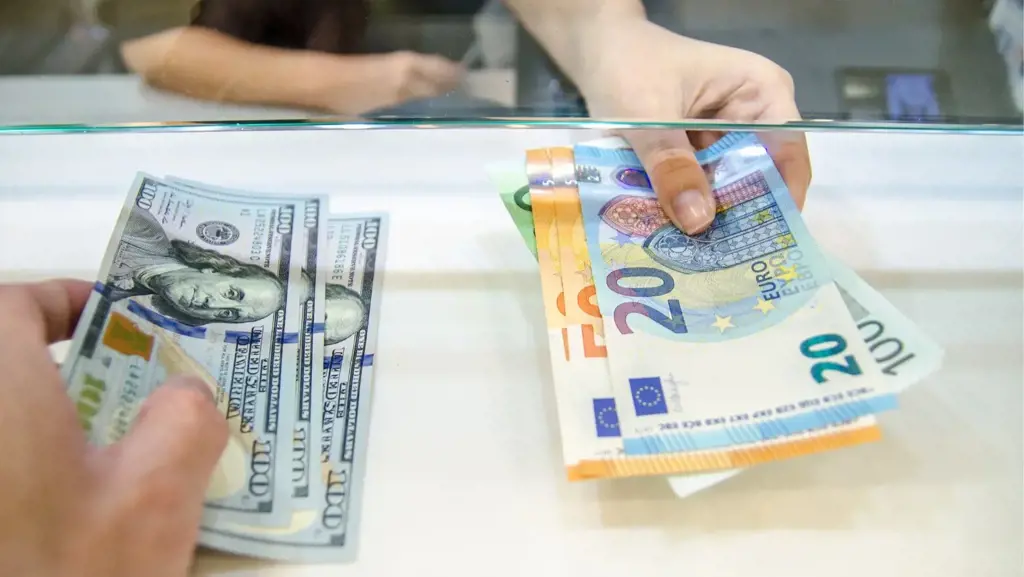
Traveling to a foreign country can be an exciting experience, but it's important to be prepared for any currency restrictions that may be in place. These restrictions can vary greatly from country to country, so it's crucial to research and plan ahead to ensure a smooth trip. Here are some steps that travelers can take to prepare for travel currency restrictions before their trip.
- Research the currency restrictions of the destination country: Every country has its own set of rules and regulations when it comes to currency restrictions. Some countries may have limits on the amount of currency that can be brought into or taken out of the country. Others may require travelers to declare any amount of currency above a certain threshold. Research the specific currency restrictions of the destination country to understand what is allowed and what is not.
- Determine the best payment methods: Depending on the currency restrictions, it may be more practical to use certain payment methods over others. For example, in some countries, it may be easier to use credit cards or digital payment methods rather than carrying large amounts of cash. Research the availability and acceptance of different payment methods in the destination country to decide which option is most convenient and secure.
- Exchange currency in advance: If there are limits on the amount of currency that can be brought into the destination country, it's wise to exchange some money in advance. This will ensure that you have local currency for immediate expenses upon arrival. Check with banks or currency exchange services to find the best rates and fees for exchanging currency.
- Be aware of reporting requirements: Some countries have reporting requirements for large sums of currency. If you plan on carrying a significant amount of cash, be sure to understand the reporting threshold and follow the necessary procedures. Failure to comply with reporting requirements can result in fines or seizure of the funds.
- Keep track of exchange rates: Exchange rates can fluctuate, so it's essential to keep track of them before your trip. This will help you determine if it's better to exchange currency in your home country or wait until you arrive at the destination. Use reputable online sources or consult with a financial advisor to stay up to date with exchange rates.
- Consider prepaid travel cards: Prepaid travel cards can be a convenient option for international travelers. These cards are loaded with a specific amount of currency and can be used for purchases and cash withdrawals. They often offer better exchange rates and more security than traditional credit or debit cards. Research different prepaid travel card options and choose one that suits your needs.
- Budget and plan accordingly: Currency restrictions can impact your travel budget, so it's crucial to plan accordingly. Take into account any fees that may be associated with currency exchange or international transactions. Consider how much cash you may need for daily expenses and any specific activities or purchases you plan to make.
In conclusion, preparing for travel currency restrictions requires research, planning, and flexibility. By understanding the currency restrictions of the destination country, determining the best payment methods, exchanging currency in advance, being aware of reporting requirements, monitoring exchange rates, considering prepaid travel cards, and budgeting accordingly, travelers can navigate currency restrictions effectively and enjoy a hassle-free trip.
President Bush's Controversial Restrictions on Travelers with HIV
You may want to see also

What are some alternative options for travelers to access and use money in countries with strict travel currency restrictions?
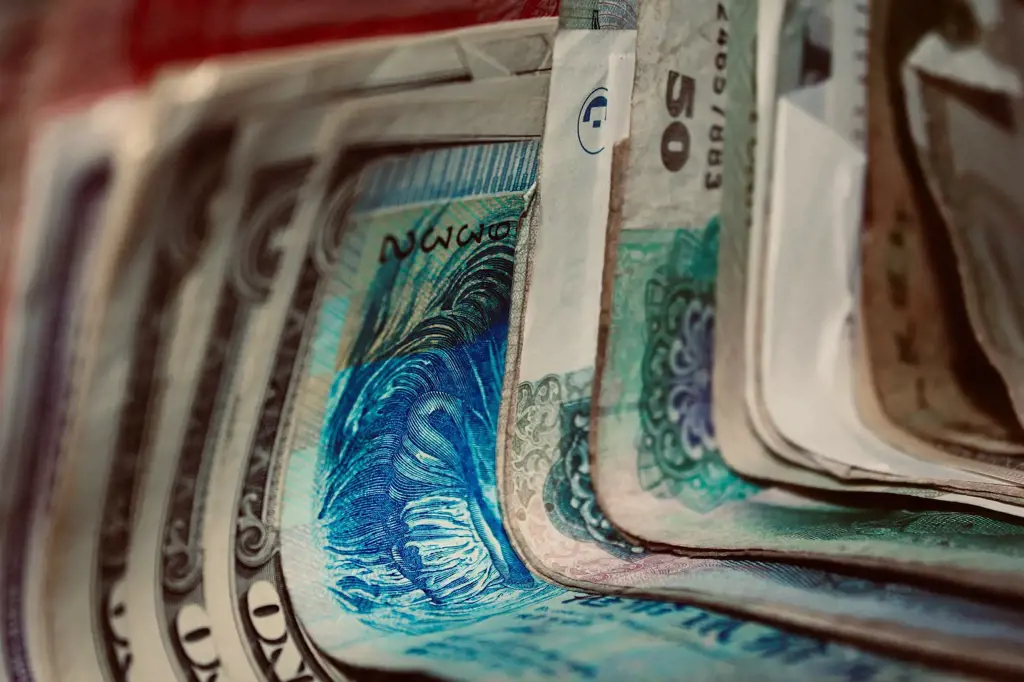
Alternative Options for Travelers to Access and Use Money in Countries with Strict Currency Restrictions
Traveling to countries with strict currency restrictions can present challenges when it comes to accessing and using money. It is important for travelers to be aware of these restrictions and to plan ahead to ensure that they have the necessary funds to enjoy their trip. Fortunately, there are several alternative options that travelers can consider to navigate these restrictions and make the most of their travel experience.
- Prepaid Travel Cards: One option for travelers is to use prepaid travel cards. These cards can be loaded with a specific amount of money before the trip and can be used like a regular debit or credit card. The advantage of using a prepaid travel card is that it allows travelers to pre-plan their expenses and avoid carrying large amounts of cash. Additionally, some prepaid travel cards offer favorable exchange rates and lower fees compared to traditional currency exchange services.
- Digital Payment Apps: Digital payment apps, such as PayPal or Venmo, can also be a convenient option for travelers in countries with strict currency restrictions. These apps allow users to send and receive money digitally, eliminating the need to carry physical cash. The advantage of using digital payment apps is that they are widely accepted, especially in popular tourist destinations. However, it is important to ensure that the app is widely used and accepted in the country of travel.
- Cryptocurrencies: Cryptocurrencies like Bitcoin have gained popularity as an alternative payment method in countries with strict currency restrictions. Some businesses in these countries accept cryptocurrencies as a form of payment, which can be advantageous for travelers who have invested in these digital currencies. However, it is crucial to research and understand the legal and regulatory framework surrounding cryptocurrencies in the destination country before relying on them as a primary payment method.
- Local Currency Exchange: In some cases, travelers may still need to rely on physical cash despite currency restrictions. Local currency exchange services can be found in most countries, and while they may impose higher fees and unfavorable exchange rates, they can provide a solution for accessing necessary funds. It is important to research reputable and trustworthy currency exchange providers to ensure the security of transactions.
- Traveler's Checks: Traveler's checks have been a popular option for accessing funds while traveling for many years. These checks, which can be obtained from banks or other financial institutions, are signed and endorsed by the traveler and can be exchanged for cash at banks or other authorized locations. While traveler's checks may not be as widely accepted as they once were, they can still provide a secure and convenient way to access funds in countries with strict currency restrictions.
- Local Bank Accounts: For travelers planning to stay in a country with strict currency restrictions for an extended period, opening a local bank account can offer a flexible and cost-effective solution. By transferring funds from their home country to the local account, travelers can access money in local currency without the need for multiple currency conversions. However, this option may require compliance with local banking regulations and could involve additional paperwork and fees.
In conclusion, traveling to countries with strict currency restrictions can require careful planning and consideration of alternative options for accessing and using money. Prepaid travel cards, digital payment apps, cryptocurrencies, local currency exchange, traveler's checks, and local bank accounts are all viable options that can help ensure that travelers have the necessary funds while complying with local regulations. It is crucial for travelers to research and assess the availability and acceptability of these options in their destination country to make the most informed decisions.
The Legality of Interstate Travel Restrictions: Examining its Constitutional Grounding
You may want to see also
Frequently asked questions
While it is technically legal to travel with any amount of cash, there are certain restrictions and risks involved. Many countries require travelers to declare large amounts of cash when entering or leaving the country, typically over a specific threshold (such as $10,000). Failure to declare could result in the seizure of the funds. Additionally, carrying large amounts of cash can make you a target for theft or loss. It is generally recommended to use safer and more convenient forms of payment, such as debit and credit cards, traveler's checks, or prepaid travel cards.
Each country has its own rules and regulations regarding the import and export of foreign currencies. It is important to research and understand these restrictions before traveling. Some countries may impose limits on the amount of foreign currency that can be brought in or taken out. Failure to comply with these limits can result in hefty fines or even legal consequences. It is advisable to check with the embassy or consulate of the destination country to ensure compliance with their specific guidelines.
Most airports have currency exchange facilities where you can convert your money into the local currency. However, these services often charge high fees and offer unfavorable exchange rates. It is generally recommended to exchange a small amount of currency at the airport to cover immediate expenses, such as transportation or small purchases, and then seek out alternative options for exchanging the remaining amount. Banks, local currency exchange offices, or reputable online services often provide more competitive rates and lower fees.
Most credit and debit cards can be used internationally, but it is important to inform your bank or card issuer of your travel plans in advance. This helps prevent any potential issues, such as your card being flagged for suspicious activity or blocked for use in certain countries. It is also advisable to inquire about any foreign transaction fees or surcharges that may apply when using your card abroad. Furthermore, it is always a good idea to have a backup form of payment, such as a different card or cash, in case your primary card is lost, stolen, or not accepted.





